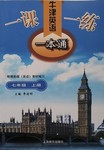题目内容
第三部分 阅读理解(共两节,满分40分)
(共15小题:每小题2分,满分30分)
阅读下列短文,从每题所给的四个选项(A、B、C和D)中,选出最佳选项,并在答题卡上将该项涂黑。
Tt was a village in India. The people were poor . However, they were not unhappy. After all , their forefathers had lived in the same way for centuries.
Then one day, some visitors from the city arrived . They told the villagers there were some people elsewhere who liked to eat frog’s legs. However, they did not have enough frogs of their own, and so they wanted to buy frogs from other places.
This seemed like money for nothing . There were millions of frogs in the fields around, and they were no use to the villagers. All they had to do was catch them . Agreement was reached, and the children were sent into the fields to catch frogs. Every week a truck arrived to collect the catch and hand over the money. For the first time ,the people were able to dream of a better future. But the dream didn’t last long.
The change was hardly noticed at first ,but it seemed as if the crops were not doing so well. More worrying was that the children fell ill more often ,and ,there seemed to be more insects around lately.
The villagers decided that they couldn’t just wait to see the crops failing and the children getting weak. They would have to use the money earned to buy pesticides (杀虫剂)and medicines. Soon there was no money left .
Then the people realized what was happening.Tt was the frog .They hadn’t been useless. They had been doing an important job-eating insects. Now with so many frogs killed , the insects were increasing more rapidly. They were damaging the crops and spreading diseases.
Now, the people are still poor .But in the evenings they sit in the village square and listen to sounds of insects and frogs. These sounds of the night now have a much deeper meaning.
1. From Paragragh 1 we learn that the villagers__________.
A.worked very hard for centuries
B.dreamed of having a better life
C.were poor but somewhat content
D.lived a different life from their forefathers
2.Why did the villagers agree to sell frogs?
A.The frogs were easy money.
B.They needed money to buy visitors.
C.They wanted to please the visitors.
D.The frogs made too much noise.
3.What might be the cause of the children’s sickness?
A.The crops didn’t do well.
B.There were too many insects.
C.The visitors brought in diseases.
D.The pesticides were overused.
4.What can we infer from the last sentence of the text?
A.Happiness comes from peaceful life in the country.
B.Health is more important than money.
C.The harmony between man and nature is important.
D.Good old days will never be forgotten.
【小题1】C
【小题2】A
【小题3】B
【小题4】C
解析:
【语篇解读】本篇文章为记叙文。主要讲述印度一个小村庄的人们在外乡人的诱导下为
了追求金钱收益捕杀青蛙,结果破坏了生态平衡。意识到这个问题后,他们及时停止了
捕杀,重新回到了宁静的乡村生活。
【小题1】推理判断题。根据第一段“The people were poor. However, they were not unhappy.”可知,村民们虽然穷,但是并不是不快乐。因此他们过着贫穷但是知足的生活。因此正确答案为C。
【小题2】推理判断题。根据第二段和第三段“This seemed like money for nothing. There were millions of frogs in the fields around, and they were no use to the villagers.”可知,外乡人要青蛙,而当地人认为青蛙对村民们没有用。因此正确答案为A。
【小题3】细节理解题。根据第四段“More worrying was that the children fell ill more often, and there seemed be more insect around lately.”可知,“最近附近的虫子的增多,使得跟让人担忧的事情出现了——孩子们经常得病。”因此正确答案为B。
【小题4】主旨大意题。本文最后一句“晚上青蛙和昆虫的鸣叫声对于村民来说有更深的含义。”从上文中可知,村民们破坏了生态环境,受到了惩罚,知道了维护生态平衡的重要性。因此正确答案为C。

 一课一练一本通系列答案
一课一练一本通系列答案 浙江之星学业水平测试系列答案
浙江之星学业水平测试系列答案 高效智能课时作业系列答案
高效智能课时作业系列答案 C.was born in Honduras D.was a native of Washington D.C.
C.was born in Honduras D.was a native of Washington D.C.